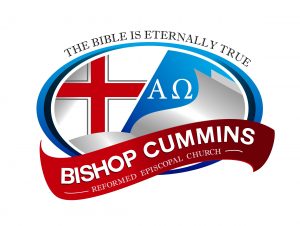What is the difference between the knowledge of good and evil and knowing right from wrong?
In this question is an allusion to the tree of the knowledge of good and evil found in the garden of Eden. God tells Adam and Eve, our first parents, not to eat of the fruit of this particular tree. (Genesis 2:17 and 3:3) Our first parents then were told not to even know of its fruit or touch the fruit. But they disobeyed God’s express command. Adam and Eve should not have desired to eat this fruit nor yearned after the knowledge of this fruit. The tree of the knowledge of good and evil was for God. He alone has the full understanding of good and evil. On the other hand, God has given us a conscience, a sense of right and wrong, and throughout our Christ-centered life, we should seek to properly form our conscience according to God’s Word. Our wisdom should grow as we fear the Lord and obey his commands. Paul tells us in Romans 2:14-15 these words:
14 For when Gentiles, who do not have the law, by nature do what the law requires, they are a law to themselves, even though they do not have the law.15 They show that the work of the law is written on their hearts, while their conscience also bears witness, and their conflicting thoughts accuse or even excuse them.
We see in these verses the corruption of our thoughts as we seek to accuse or defend ourselves. It is our lifetime assignment to properly form our conscience, and this proper formation of conscience, our sense of right and wrong, must be formed by God’s Word. Going back to the question then, there is a difference between our first parents desiring the tree of the knowledge of good and evil which was prohibited by God and the knowledge of right and wrong which helps us discern what is right and fitting for us to do, that we might be formed and reformed by the Scriptures.
Why did the disciples carry swords?
The discussion of the disciples carrying swords with them comes up at the Last Supper. Luke 22:37-38 says this,
“37 For I tell you that this which is written must be fulfilled in Me, ‘And He was numbered with transgressors’; for that which refers to Me has its fulfillment.” 38 They said, “Lord, look, here are two swords.” And He said to them, “It is enough.”
The disciples carried swords with them because our Lord had predicted His death by crucifixion, and Christ’s disciples had resisted the message of His death and suffering. I think the disciples carried swords in order to protect themselves and the Lord. John 18:10 identifies Peter as the disciple who struck Malchus, the servant of the high priest, cutting off his ear. Further, from Luke 22:37-38, the disciples took Jesus words about the sword to mean He was permitting them to bring the sword with them to the Garden of Gethsemane but His words, “It is enough” could better be understood to mean “enough of that sort of talk.” Later when Peter struck the servant of the high priest with his sword, Jesus said in Luke 22:51, “No more of this!” And He touched the man’s ear and healed him.”
Our Lord also speaks of the futility of using the sword to prevent Jesus’ death. Matthew 26:52 records these words from Christ addressed to Peter,
“Put your sword away in its place, for all who take the sword will perish by the sword.”
The apostle Paul also affirms this truth in Ephesians 6:12-13,
“12 For our struggle is not against flesh and blood, but against the rulers, against the powers, against the world forces of this darkness, against the spiritual forces of wickedness in the heavenly places. 13 Therefore, take up the full armor of God, so that you will be able to resist in the evil day, and having done everything, to stand firm.”
The apostle Paul explains the armor of God which is not literal physical armor but the gifts that God gives to us to protect us from Satan and the demonic host. The sword mentioned among the other spiritual armor is the sword of the Spirit which is the Word of God (Ephesians 6:17).
May we trust in God’s protection over our lives and depend on Christ His only Son for our salvation. May we seek to grow in wisdom, in the fear of the Lord and in the discernment of what is right and wrong.


